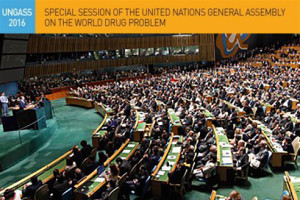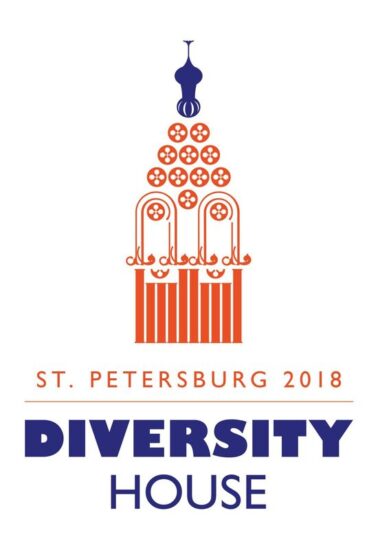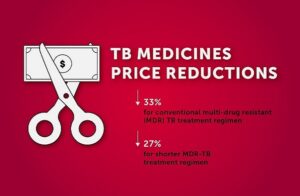CIVIL SOCIETY STATEMENT
THE UNGASS OUTCOME DOCUMENT: DIPLOMACY OR DENIALISM?
 March 14, 2016—We, the undersigned civil society organisations, representing drug policy expertise and affected communities worldwide, express our serious concerns about the preparations and draft Outcome Document for the UN General Assembly Special Session (UNGASS) on the “world drug problem” in April 2016.
March 14, 2016—We, the undersigned civil society organisations, representing drug policy expertise and affected communities worldwide, express our serious concerns about the preparations and draft Outcome Document for the UN General Assembly Special Session (UNGASS) on the “world drug problem” in April 2016.
UN Secretary General Ban Ki-moon called for the UNGASS to be a “wide-ranging and open debate that considers all options”, and an inclusive discussion was promised, taking into account the perspectives of all stakeholders, member states, UN agencies, academia and civil society. The UNGASS is a critical opportunity for an honest assessment of what is, and what is not, working in global drug control. It is an opportunity to find a new consensus that addresses the reality of the failure and negative consequences of existing policies.
The UNGASS process has failed to recognise the lack of progress achieved by international drug control over the past 50 years – substances under international control are more widely available and affordable than ever. It has failed to acknowledge the damage caused by current approaches: systemic human rights abuses, and continued use of the death penalty for drug offences; exacerbation of HIV and hepatitis C transmission; intolerably inadequate access to controlled drugs for medical purposes; 187,000 avoidable drug-related deaths each year; violence, corruption and killings perpetuated by criminal drug markets; systemic stigmatization of people who use drugs; destruction of subsistence farmers’ livelihoods by forced crop eradication; and billions of dollars of public money wasted on drug policies that demonstrably do not work.
Given the highly problematic, non-inclusive and non-transparent nature of the preparatory process, the UNGASS is now perilously close to representing a serious systemic failure of the UN system. By failing to engage in meaningful critique, new ideas or language, the UNGASS Outcome Document is at risk of becoming an expensive restatement of previous agreements and conventions. This would represent a major failing for the General Assembly – and a betrayal for the member states, UN agencies, civil society, and public who have demanded so much more.
Problems with the UNGASS preparatory process
The process has been dominated by the status quo forces of the Vienna-based UN drug control apparatus. The Commission on Narcotic Drugs (CND) and its secretariat in the UN Office on Drugs and Crime (UNODC) in Vienna were tasked with leading the preparations, instead of the UN General Assembly itself in New York. These Vienna institutions have actively sought to exclude innovative and forward-looking proposals from member states, other UN agencies, and civil society – perpetuating the same power struggles and paralysis that have hindered the Vienna debate on drug control for decades.
Many member states from the global south, notably the Caribbean and Africa, do not have permanent representation in Vienna and have been largely unable to participate in the negotiations on the Outcome Document. The General Assembly encouraged the participation of all member states in the UNGASS preparations and requested the “provision of assistance to the least developed countries” for this purpose; but no extra budgetary resources seem to have been made available. In order to ensure an “inclusive and effective preparatory process”, the CND secretariat set up a website that includes many useful contributions. However, the CND secretariat appears to use the website as a parking lot for dissenting ideas rather than promoting it as a resource for inputs in the negotiations. Finally, the negotiations have mostly taken place in closed informal meetings rather than official ‘intersessionals’ – excluding civil society participation and contributing to the lack of transparency.
These problems have been compounded by the self-imposed reliance on consensus-based decision-making in Vienna and a push from many member states to finalise the Outcome Document before it gets to the General Assembly. This means that a handful of vocal and regressive countries can block progressive language – whereas other parts of the UN system (including the General Assembly) take votes on key issues whenever needed. The notion of a global consensus on drugs is untenable: today, people face the death penalty in some countries for possessing drugs that are legally regulated in others. Consensus can be valuable, but where polarisation exists, it can result in statements that fail to capture genuine policy tensions that merit honest discussion and debate.
Problems with the draft UNGASS Outcome Document
Member states agreed to produce “a short, substantive, concise and action-oriented document” that proposes “ways to address long-standing and emerging challenges in countering the world drug problem”. Yet the draft Outcome Document is now a long way from this aspiration:
- The current draft has sprawled to over ten pages and more than 100 paragraphs, yet includes almost no operational outcomes or actions to address the countless challenges, tensions and contradictions that exist in international drug control. Proposals that the UNGASS at least establish an expert advisory group to undertake a critical review and elaborate recommendations for modernising the system towards 20195 have so far been rejected.
- Rather than considering “all options”, the draft simply reaffirms the current approach and is devastating in its failure to acknowledge the damage of punitive policies noted above. These costs have been highlighted repeatedly in submissions to the UNGASS from civil society, UN agencies and member states, yet the draft document claims “tangible and measurable progress”, providing no justification or explanation of what progress this refers to.
- The current draft is not a balanced reflection of the formal UNGASS submissions and recommendations made by UN agencies. Many of these submissions explicitly call for ending the criminalization of people who use drugs, but this point has been excluded from successive drafts of the Outcome Document negotiated in Vienna demonstrating a lack of coherence across the UN family. Furthermore many inputs from the Civil Society Task Force, NGOs, member states and regional groups have also been neglected, most notably calls for the abolition
of the death penalty for drug offences. - Despite explicit acknowledgement of the term ‘harm reduction’ by the General Assembly as long ago as 2001, there is no acknowledgement of the need fora harm reduction response to drug use in the draft Outcome Document. In addition, specific references to effective and life saving measures such as needle and syringe programmes, overdose prevention, and opioid substitution treatment are still under dispute. This is despite the fact that the European Union and multiple countries of Latin America and Africa have called for explicit recognition of harm reduction.
- The draft Outcome Document reaffirms the call for “a society free of drug abuse” by 2019, a goal set by the 2009 Political Declaration. Since the 1998 UNGASS, convened under the slogan “A drug-free world, we can do it!”, drug use has in fact risen. This goal is not aspirational, it is delusional and dangerous, framing and distorting the entire policy response, prioritising the elimination of drugs above health, well-being, human rights, and the reduction of drug-related harm.
- The draft is entirely out of sync with the realities on the ground in many countries – including the successful implementation of harm reduction programmes, a growing trend towards ending the criminalization of drug use, the exploration of regulated-market models for cannabis, the recognition of indigenous rights, as well as the social, spiritual and therapeutic uses of psychoactive plants. The reality is that globally, the outdated punitive enforcement paradigm in drug control is being challenged, reviewed, and reformed.
We call upon member states – especially those who have been shut out of the Vienna-based negotiations – to challenge the current draft of the UNGASS Outcome Document, to ensure the debate on it contents is not closed in Vienna, and to prepare statements expressing their disappointment and dissent at the UNGASS in April. We call on UN agencies, senior UN officials, academics, civil society, and networks of impacted communities to do the same. The UNGASS is a unique opportunity to take a stand and demonstrate leadership for drug policy reform, as we simply cannot continue with the same failed approach.
This statement has been made on behalf of:
[Names of signing orgs]




